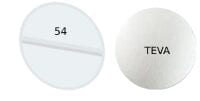Uses
Iron supplements (ferrous fumarate, ferrous gluconate, ferrous sulfate) are used to treat or prevent anemia (a lower than normal number of red blood cells) when the amount of iron taken in from the diet is not enough. Iron is a mineral that is available as a dietary supplement. It works by helping the body to produce red blood cells.
Side Effects Of Iron Supplements
Iron supplements may cause side effects. Tell your doctor if any of these symptoms are severe or do not go away:
- constipation
- stomach pain
- diarrhea
- nausea
- teeth staining
Iron supplements may cause other side effects. Call your doctor if you have any unusual problems while taking this medication.
Warnings & Precautions
Before taking an iron supplement:
- tell your doctor and pharmacist if you are allergic to any iron products, including ferrous fumarate, ferrous gluconate, ferrous sulfate, any other medications, or any of the ingredients in iron preparations. Ask your doctor or pharmacist for a list of the ingredients.
- tell your doctor and pharmacist what other prescription and nonprescription medications, vitamins, nutritional supplements, and herbal products you are taking or plan to take. Your doctor may need to change the doses of your medications or monitor you carefully for side effects.
- if you are taking certain antibiotics such as doxycycline, minocycline (Dynacin), and tetracycline, take them 2 hours before or 2 hours after iron supplements.
- tell your doctor if you have a certain type of blood disease such as hemolytic anemia (a condition with an abnormally low number of red blood cells). Your doctor may probably tell you not to take an iron supplement.
- tell your doctor if you have or have ever had ulcers or gastrointestinal bleeding.
- tell your doctor if you are pregnant, plan to become pregnant, or are breastfeeding. If you become pregnant while taking an iron supplement, call your doctor.
Dosage Of Iron Supplements
Iron supplements (ferrous fumarate, ferrous gluconate, ferrous sulfate) come as regular, film-coated, and extended-release (long-acting) tablets; capsules and an oral liquid (drops and elixir) to take by mouth. Iron is usually taken with food or immediately after a meal once daily or as directed by your doctor. Take iron at around the same time(s) every day. Follow the directions on your prescription label carefully, and ask your doctor or pharmacist to explain any part you do not understand. Take iron exactly as directed. Do not take more or less of it or take it more often than prescribed by your doctor.
Iron supplements are available alone and in fixed-combination with vitamins and certain medications. If your doctor has prescribed a medication that contains iron, you should be careful not to take any other supplements or medications that also contain iron.
Swallow the tablets, film-coated tablets, and extended-release tablets whole; do not split, chew, or crush them.
Mix the elixir with water or fruit juice to avoid possible teeth staining; do not mix with milk or wine-based solutions.
Iron drops come with a special dropper for measuring the dose. Ask your pharmacist or doctor to show you how to use it. The drops may be placed directly in the mouth or mixed with water, breastmilk, cereal, formula, or fruit juice. Dispense gently into the mouth towards the inner cheek; a small amount will remain in the tip. If you are giving iron drops to a child, read the package label carefully to be sure that it is the right product for a child of that age. Do not give iron products that are made for adults to children.
Other
Keep all appointments with your doctor and the laboratory. Your doctor may order certain lab tests to check your response to iron.
Ask your pharmacist any questions you have about iron supplements.
It is important for you to keep a written list of all of the prescription and nonprescription (over-the-counter) medicines you are taking, as well as any products such as vitamins, minerals, or other dietary supplements. You should bring this list with you each time you visit a doctor or if you are admitted to a hospital. It is also important information to carry with you in case of emergencies.
Source
All information has been provided courtesy of MedLinePlus from the National Library of Medicine and from the FDA.



